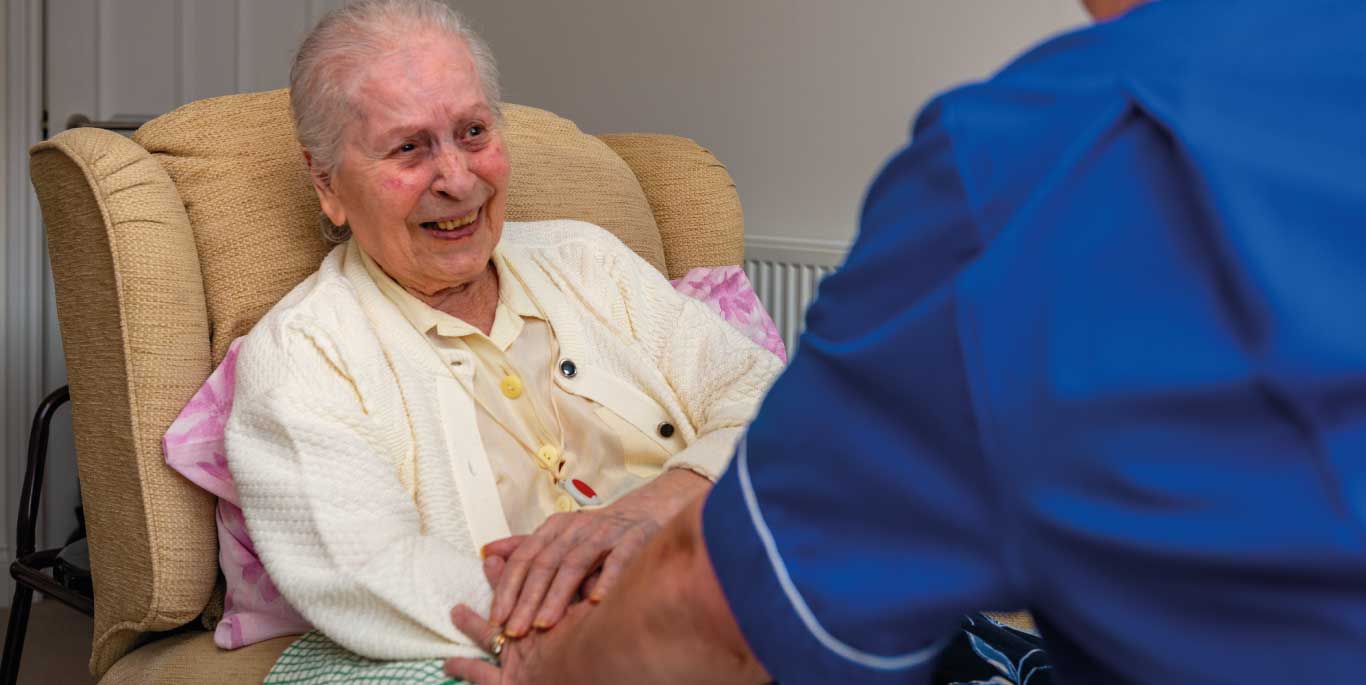Dementia Care and Support at Home: Empowering Individuals

Dementia is a challenging condition that affects millions of people worldwide. As the number of individuals living with dementia continues to rise, the need for quality care and support in the comfort of one’s own home has become increasingly important. This article explores the various aspects of dementia care and support at home, providing valuable insights for those seeking to understand and implement effective care strategies.
Understanding Dementia and Its Impact
Dementia is not a single disease but a term that describes a group of symptoms affecting memory, thinking, and social abilities severely enough to interfere with daily life. Alzheimer’s disease is the most common cause of dementia, but several other conditions can lead to similar symptoms.
The impact of dementia extends beyond the individual diagnosed, affecting family members, friends, and care assistants. As the condition progresses, individuals may experience:
- Memory loss
- Difficulty communicating
- Challenges with problem-solving and planning
- Changes in mood and behaviour
- Confusion with time and place
The Importance of Home-Based Care
For many individuals with dementia, remaining in familiar surroundings can provide comfort and stability. Home-based care allows for:
- Personalised attention and support
- Maintenance of daily routines and habits
- Preservation of independence and dignity
- Reduced stress associated with unfamiliar environments
- Closer involvement of family members in the care process

Key Elements of Effective Dementia Care at Home
Creating a supportive environment for individuals with dementia requires a multifaceted approach. Some essential elements include:
- Safety Modifications: Adapting the home environment to minimise risks and enhance safety is crucial. This may involve installing grab bars, removing tripping hazards, and securing potentially dangerous items.
- Routine Establishment: Developing and maintaining a consistent daily routine can help reduce confusion and anxiety for individuals with dementia.
- Communication Strategies: Learning effective communication techniques is vital for both care assistants and family members. This includes speaking clearly, using simple language, and employing nonverbal cues when necessary.
- Cognitive Stimulation: Engaging in activities that promote cognitive function, such as puzzles, memory games, and reminiscence therapy, can help maintain mental acuity and improve quality of life.
- Physical Activity: Regular exercise, tailored to the individual’s abilities, can help maintain physical health and potentially slow cognitive decline.
- Nutritional Support: Ensuring proper nutrition and hydration is essential for overall health and can help manage some symptoms of dementia.
- Medication Management: Properly administering and monitoring prescribed medications is crucial for managing symptoms and preventing complications.
Challenges and Solutions in Home-Based Dementia Care
While caring for someone with dementia at home can be rewarding, it also presents unique challenges. Some common issues and potential solutions include:
- Caregiver Burnout: Providing round-the-clock care can be exhausting. Implementing respite care services and joining support groups can help care assistants maintain their own well-being.
- Behavioural Changes: Dementia can lead to challenging behaviours such as aggression or wandering. Understanding the underlying causes and employing appropriate strategies can help manage these issues effectively.
- Financial Strain: The cost of ongoing care can be significant. Exploring available resources, such as government assistance programmes and long-term care insurance, can help alleviate financial burdens.
- Social Isolation: Both individuals with dementia and their care assistants may experience social isolation. Encouraging participation in community activities and support groups can help maintain social connections.
- Home Safety Concerns: As dementia progresses, ensuring home safety becomes increasingly challenging. Regular home assessments and adaptations can help address evolving safety needs.
The Role of Professional Home Care Services
While family members often take on primary care responsibilities, professional home care services can provide invaluable support. These services can offer:
- Respite care to give family care assistants a break
- Specialised dementia care expertise
- Assistance with daily living activities
- Medication management
- Companionship and social engagement
Caremark’s Dementia Care Services
Caremark understands the unique challenges faced by individuals with dementia and their families. Our specialised dementia care services are designed to provide comprehensive support in the comfort of home. Our trained care assistants offer:
- Personalised care plans tailored to each customer’s needs and preferences
- Assistance with daily living activities, including personal care and meal preparation
- Medication reminders and management
- Cognitive stimulation activities and companionship
- Regular communication with family members to ensure coordinated care
By choosing Caremark’s dementia care services, families can rest assured that their loved ones are receiving expert, compassionate care that promotes dignity, independence, and quality of life. Our team is committed to supporting individuals with dementia and their families throughout their journey, providing the resources and care needed to navigate the challenges of dementia with confidence and comfort.
For more information on Caremark’s dementia care services and how we can support you and your loved ones, please contact our dedicated team today.